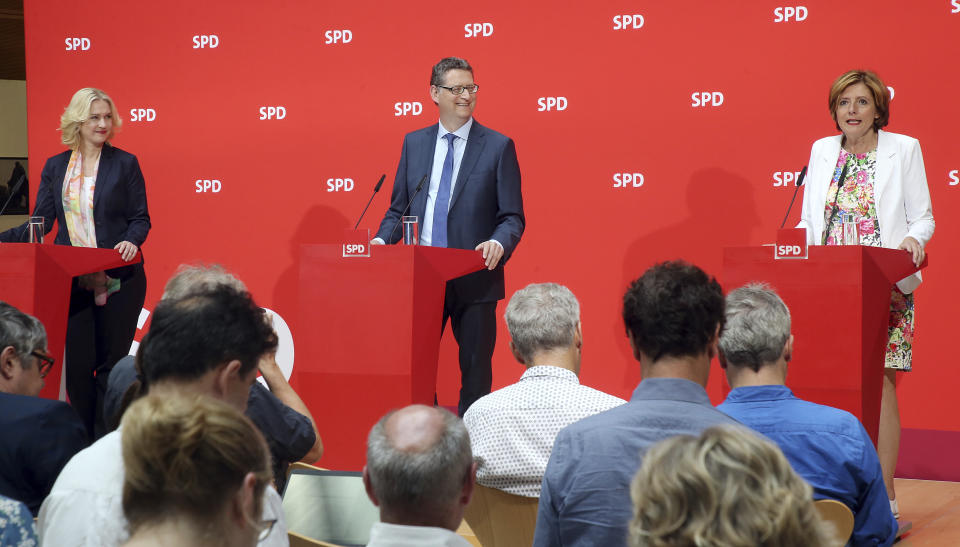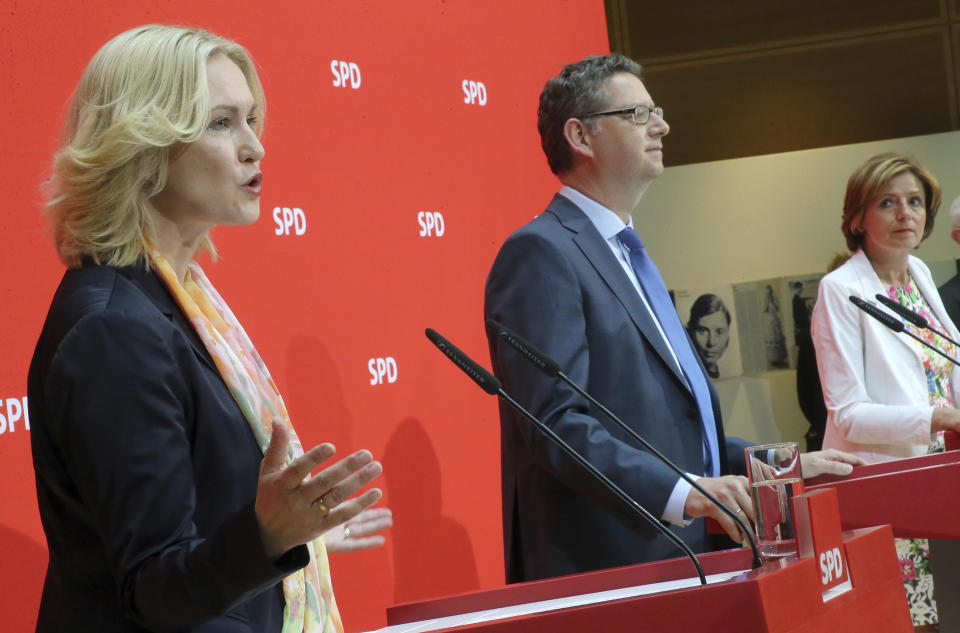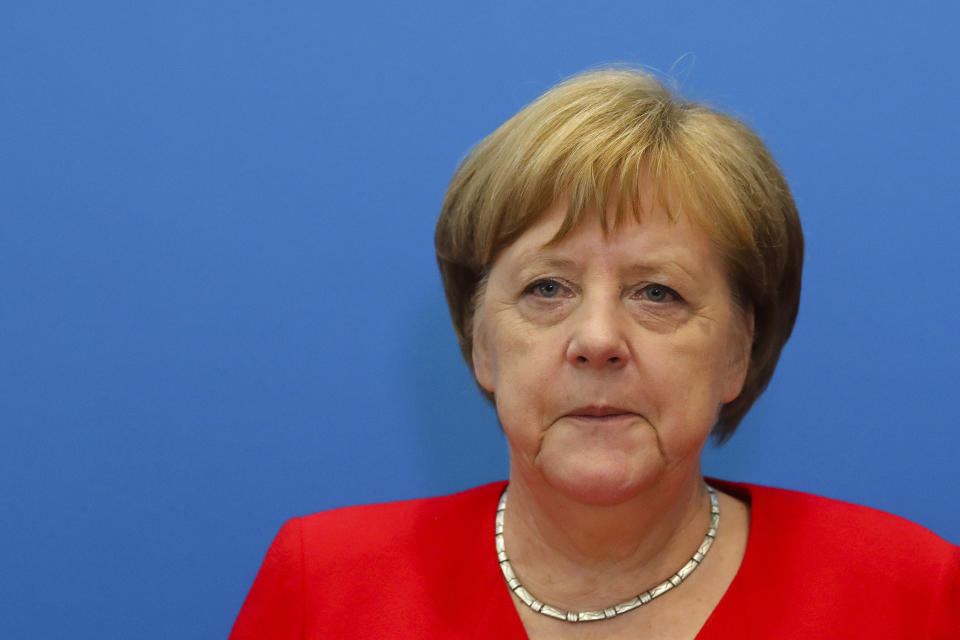Germany: Merkel partners set ballot on new leader this fall
BERLIN (AP) — German Chancellor Angela Merkel's center-left coalition partner on Monday decided to ballot its 440,000 members this fall on who the party's new leader or leaders will be, a decision that may determine how much longer the current government lasts.
The Social Democrats, who have provided three of Germany's eight post-World War II chancellors, are in a deep poll slump and rudderless after leader Andrea Nahles quit following the party's battering in last month's European Parliament election. So far, no one has said they are seeking the notoriously difficult job, and the three deputy leaders who took the reins jointly on an interim basis have all ruled themselves out.
The party has been the junior partner in three of the conservative Merkel's four coalition governments, joining the latest one only reluctantly after a poor national election showing in 2017. Its members decided by a two-to-one margin early last year to join the current coalition, but since then the party's poll ratings have declined further and discontent with the government has mounted.
That has fueled speculation that Merkel's coalition could collapse before its term is due to end in the fall of 2021. This likely would end the chancellor's career, since she has said that she won't seek a fifth term and in the past has shown no desire to run a minority government. But it looks as though an answer will be a while coming.
Thorsten Schaefer-Guembel, one of the interim leaders, said that candidates to be the new chair — either individuals or teams of two, including at least one woman — can declare that they are running from July 1 to Sept. 1. They will set out their stall at up to 30 regional conferences and the party's members will then vote, with the result expected Oct. 26.
If no candidate gets more than 50 percent support, a runoff membership ballot between the top two will be held. A party congress in December is expected to formally approve the new leadership.
The party congress is also expected to address the future of Merkel's "grand coalition," though the party has yet to finalize the procedure it will use. Much may depend on the prospective leaders' position.
In the past, the Social Democrats' leaders have tended to emerge from backroom deals. That practice has run into growing resistance.



